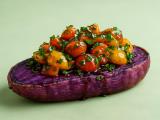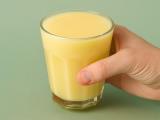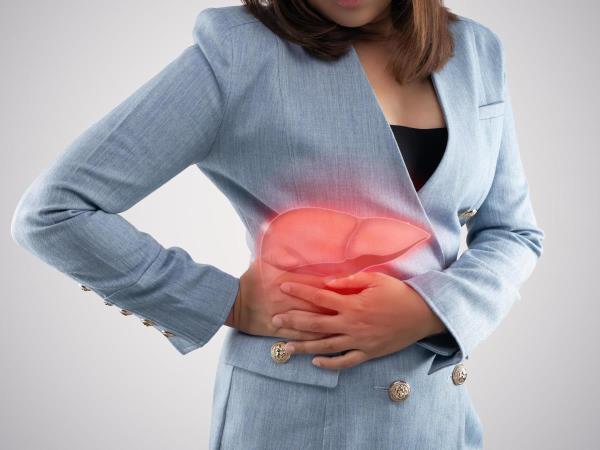What happens in fatty livers?
Fatty liver is not something that only happens to people who overindulge in alcohol. On the contrary, more and more people have non-alcoholic fatty liver, meaning that fat accumulates in the liver due to poor dietary habits, excess weight, stress, and lack of exercise.
According to the World Health Organization, 25-30% of adults worldwide are estimated to have fatty liver, and the numbers are rapidly increasing. Doctors everywhere are noticing an increase in cases of fatty liver, especially in middle-aged and young people with excess body weight.
Fatty livers no longer perform their function well, and one of the consequences is that the body no longer knows how to properly utilize iron.
Why is iron so important?
Iron is the substance in our bodies that carries oxygen to every cell. Without oxygen, there is no energy, no will, no strength. Every muscle, every thought, and even our heart needs iron to function. When iron is depleted or the body doesn't know how to use it, symptoms such as:
- fatigue even after sleeping 8 hours,
- feeling of heavy legs or muscle weakness,
- headaches, irritability, lack of concentration,
- rapid heartbeat with minimal effort,
- immune system issues.
A very interesting study conducted at the Edith Cowan University in Australia showed that people with fatty livers, especially teenagers, have significantly poorer physical fitness. Not because they don't want to move... Their bodies simply didn't have enough iron to function normally during physical activity.
The study involved 848 17-year-old girls, and those with fatty livers were found to have noticeably worse fitness, even if they were not necessarily overweight. Their blood showed that they had iron, but their bodies were unable to utilize it, similar to having a full tank but a faulty engine.
How to recognize iron deficiency?
Folk wisdom says: if your hair is falling out, if you have brittle nails, or if you are cold in the summer, something is off. Often, it's due to iron deficiency.
Today, medicine also recognizes that iron deficiency can lead to chronic fatigue, a weaker immune system, and disruptions in the functioning of internal organs. The liver, among other functions, stores iron, so it makes sense that when overloaded with fat, it can no longer perform this function effectively.
According to the National Institutes of Health (USA), adult men need around 8 mg of iron per day, women of childbearing age may require up to 18 mg due to menstrual losses. During pregnancy, the need jumps to 27 mg daily.
What can you do?
The first thing is to check your diet. The Mediterranean diet, which is widely talked about by doctors today, is not just a fad. This diet is rich in:
- whole grains, which contain plenty of fiber and help the liver detoxify,
- leafy green vegetables like spinach and chard, which are sources of plant-based iron (although less bioavailable),
- legumes, which contain lots of iron, plus more magnesium and potassium,
- fresh fruit, especially citrus fruits high in vitamin C – which helps the body absorb iron better,
- red meat in moderation, which contains heme iron – the form of iron that the body easily uses.
But beware: individuals with fatty livers often consume foods that are detrimental. These include processed carbohydrates, sugars, white flour, fatty fast foods, all of which further burden the liver and worsen iron function.
And here comes another paradox: to exercise and lose weight, you need to have enough iron. But if the body cannot utilize it, you are trapped in a vicious cycle. You can't work out because you lack energy, yet exercise could improve your liver.
What does science say?
Scientists from Edith Cowan University are convinced that treating fatty livers should start differently than previously thought. Not just by saying eat less and exercise more, but primarily by helping the body use iron more effectively. Only then can a person feel strong enough to begin moving.
This was also confirmed by a 2020 American study published in the Journal of Hepatology, showing that individuals with functional iron deficiency had a harder time losing weight, experienced more muscle pain, and took longer to recover from exercise.
Folk remedies and wisdom
For centuries, nettle has been used in folk medicine to boost blood and liver health because it's rich in iron and vitamin C. It was used as tea, in soups, or as juice. Drinking beetroot juice was often advised too, as it cleanses the blood and liver. Grandmothers used to say: beetroot makes blood.
Molasses were also popular, a dark liquid left during sugar production – rich in iron and minerals. A spoon on an empty stomach and your day is lighter. Today, it can be found in organic stores and is recommended by many nutritionists.
Moreover, our ancestors valued bitterness in their diet: chicory, dandelion, wormwood... These plants stimulate liver function and assist in detoxification.
What can you do starting today?
If you suspect your liver is tired, and you feel weak, you don't need to rush to the doctor immediately. You can start today by:
- drinking nettle tea (fresh or dried),
- including lemon juice in your diet to improve iron absorption,
- adding oatmeal with dried fruits to breakfast (e.g., raisins and dried apricots are rich in iron),
- avoiding coffee and tea right after meals as they inhibit iron absorption,
- preparing a meal with red lentils or beans once a week.
And remember: exercise doesn't always mean running or going to the gym. Start with daily 15-minute walks. Once the iron in your body balances, you'll have more energy and motivation for everything else.
Conclusion
Fatty livers are not just a problem of modern times. They are silent enemies that diminish strength, willpower, and health. And perhaps the key to the solution lies not only in weight loss or diets but in understanding the role of iron, which is like a spark in the engine. Without it, you won't get anywhere.
By taking care of your liver, you are taking care of your whole body. By incorporating more iron-supporting foods into your diet, you are taking a big step towards better well-being, stronger blood, and more life energy.
An old folk saying goes: healthy liver for a healthy body.









 Would you like to be informed about news on the website?
Would you like to be informed about news on the website?

